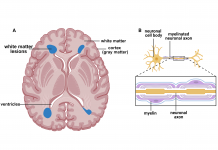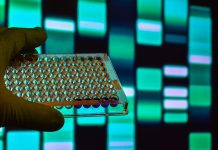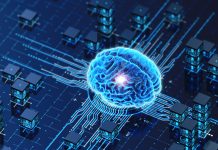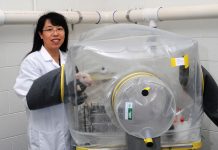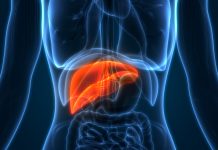Open Access Government produces compelling and informative news, publications, eBooks, and academic research articles for the public and private sector looking at health, diseases & conditions, workplace, research & innovation, digital transformation, government policy, environment, agriculture, energy, transport and more.
Home Search
node - search results
If you're not happy with the results, please do another search
Smart integrated lighting and control solutions to support your decarbonisation initiatives
Urbis Schréder walks us through their smart LED lighting and control solutions for city centres, roads, bridges, tunnels, buildings, and workspaces.
Providing the digital energy ecosystem for the energy transition
Amp X is an innovative digital energy platform using a unique, whole-system approach to address critical issues that exist in the electricity grid as a result of the ongoing energy transition towards a fully decarbonised future.
Fixed Line, Cloud and Mobile Connectivity to Meet Any Need: Spitfire Network Services Limited
Spitfire is a business-class provider of IoT and mobile services, fixed-line Internet connectivity, VoIP, and Wide Area Networking (WAN) services. Founded in 1988 and now with offices in London and Birmingham, we aim to supply our customers with reliable and market-leading telecommunications services.
What is the link between white matter lesions and neurodegeneration?
Tara M. DeSilva from the Department of Neurosciences, Cleveland Clinic, examines the link between white matter lesions and neurodegeneration.
Enhancing cancer care through genomic testing
Simon Holt, Honorary Professor at Swansea University, reflects on the key challenges within cancer care and the benefits of genomic testing in improving patient outcomes.
Qatar and the Israel-Hamas conflict: Hybrid mediation power on display
Here, Professor Vassilis K. Fouskas explains the diplomatic and mediative powers of Qatar and its influence in the current Israel-Hamas conflict.
Self-organising system mimics features of complex organisms’ brains
Researchers demonstrate the impact of imposing physical limits on an Artificially Intelligent system, similar to the human brain, which must evolve and function within physical and biological limitations.
Minimal chemical pollution, increased offshore wind farms and energy production sustainability
Coordinator of the Anemoi project, Bavo De Witte (ILVO), discusses the path to minimal chemical pollution and increasing the sustainability of offshore wind energy.
Personalized medicine: “Tyranny of the gene”
Dr Priya Hays, Ph.D., CEO/Science Writer at Hays Documentation Specialists, LLC, responds to “Tyranny of the Gene.” Is personalized medicine a threat to public health? Not really, but yes, it’s an argument for price controls and perhaps more regulations; we hear.
Overcoming HPC systems storage challenges for government agencies
John Holtz, Director of Federal Sales, Panasas, uncovers the top three HPC systems storage challenges for government agencies and how to overcome them.
Transforming chicken feathers into clean electricity
Food industry generates vast poultry-related waste, with 40 million tonnes of chicken feathers. This is why clean energy is so necessary.
Next-generation climate services, regional to local scale
Here, we discover how Climate Service Center Germany (GERICS) develops next-generation climate services from the regional to local scale.
Immigrant, black and racialized people’s health
Learn about the research of Dr. Bukola Salami, Professor at Cumming School of Medicine, University of Calgary, in this particular focus on Immigrant, Black, and Racialized People’s Health.
Online pressure and gas analysis of lithium-ion cells during abuse tests
Dr Carlos Ziebert, Leader of the Group Batteries – Calorimetry and Safety, KIT, explains how online venting gas analysis of batteries can be performed using a combination of battery calorimetry and online mass spectrometry.
Gnotobiotic pig models: Illuminating the enigma of human norovirus infection and immunity
Dr Lijuan Yuan and her team have studied human noroviruses (HuNoV) in gnotobiotic pigs for over 15 years. Here, she explains how such research is advancing our understanding of HuNoV pathogenesis, infectivity, and immunity.
The modern battlefield: £89 Million awarded for UK armed forces
In an incredible development, the UK Armed Forces are set to experience improved connectivity on the battlefield, thanks to massive £89 million contract award.
How can AI oncology diagnostics help the NHS?
DeepMed has developed an AI oncology diagnostics system, DeepPathTM - LYDIA, to assist histopathologists in performing lymph node metastasis detection quickly and accurately.
Understanding immune mechanisms to create novel treatments for primary biliary cholangitis
Professor Channakeshava S Umeshappa from Dalhousie University discusses the burden of primary biliary cholangitis and how understanding immune mechanisms may help to treat it.
Insights into magnesium batteries using calorimetry
Dr Carlos Ziebert, Leader of the Group Batteries – Calorimetry and Safety, KIT, explains how generated heat and self-discharge of magnesium batteries can be studied through calorimetry.
Quantum network technology
Prof Dr Stephanie Wehner, Director of the European Quantum Internet Alliance, explains how quantum network technology and a quantum internet could revolutionise communication and connectivity.




